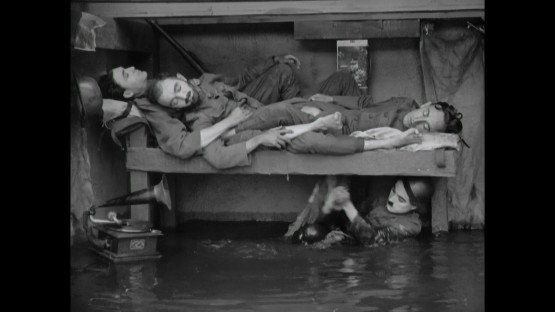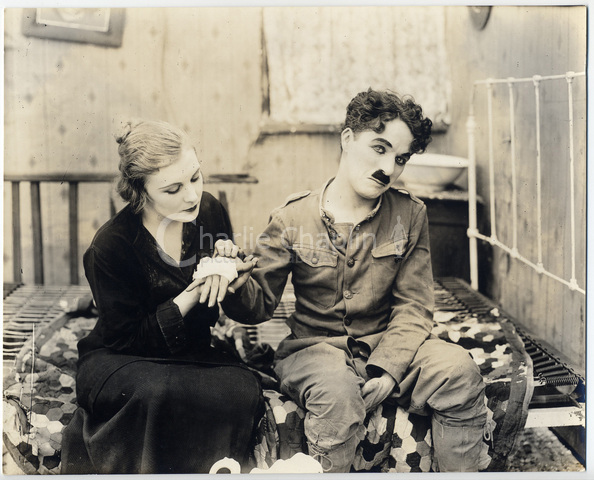Several days ago, our film professor showed us this movie, Shoulder Arms, to commemorate the anniversary of the World War I. Before that class, I did not realize how special 2018 was. “Just a new year, nothing special.” As I said when the first time 2018 came. However, Chaplin revealed the significance of this year and unfold the hard-earned peace before my eyes.

Shoulder Arms is Charlie Chaplin's second film for First National Pictures. Released in 1918, it is a silent comedy set in France during World War I. I remembered that we all laughed at Chaplin’s awkward performance at the beginning, but became silent when this film ended.
Chaplin defused the cruelty of the war. And the gag from his army also alluded to the antics of the war. Under the influence of war thinking, it is especially fun to watch him opening a package with a gas mask, throwing cheese and so on. One of my favorite scenes is his sleeping in the water. Though he has used water image in his previous films, this time the collective immersion helped the comedy unabated. The absurd identity exchange and the way to win the victory are fitting the end of a dream.

A review in the October 21, 1918 New York Times was typical: "'The fool's funny,' was the chuckling observation of one of those who saw Charlie Chaplin's new film. Shoulder Arms, at the Strand yesterday—and, apparently, that's the way everybody felt. There have been learned discussions as to whether Chaplin's comedy is low or high, artistic or crude, but no one can deny that when he impersonates a screen fool he is funny. Most of those who go to find fault with him remain to laugh. They may still find fault, but they will keep on laughing."

Unfortunately, this is only a dream of a soldier. But it is the dream that makes the irony even stronger: Chaplin was waked up before the end of the film, with the subtitles writing the wishes for peace in the world. However, the war continued at the moment. 22 years later, another war made him have The Great Dictator. Hence, Chaplin’s wish of world peace could really only his illusory.

The war's pattern and conception were satirized by Shoulder Arms. This film was widely regarded as an outpost of The Great Dictator 12 years later. Chaplin’s bold attempt to satirize the brutal war is breathtaking. Many classic scenes have been imitated by the younger generation. The dream can be regarded as a compromise under the background of the Times, but it happened to integrate the spirit of banter and anti-war.

100% of the SBD rewards from this #explore1918 post will support the Philadelphia History Initiative @phillyhistory. This crypto-experiment conducted by graduate courses at Temple University's Center for Public History and MLA Program, is exploring history and empowering education. Click here to learn more.
This is great! I really love the connections to The Great Dictator, too.
Downvoting a post can decrease pending rewards and make it less visible. Common reasons:
Submit
Courage is worth more than art in The Great Dictator. It still makes sense today. I have to say that there is no hypocrisy in his performance.
Downvoting a post can decrease pending rewards and make it less visible. Common reasons:
Submit